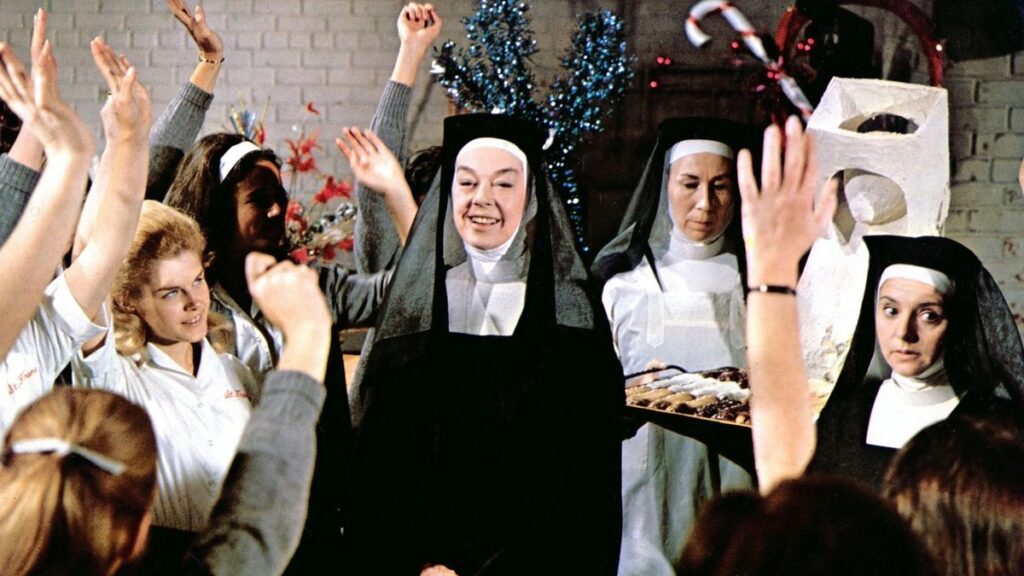
There’s always been a shortage of films coming out of Hollywood about female camaraderie. Even rarer are films about the friendships between women that don’t have some iteration of the “marriage plot” or some spousal issue of one kind or another. This is why Ida Lupino’s The Trouble With Angels (1966) has remained such a classic.
Based on Jane Trahey’s memoir, The Trouble With Angels follows Mary (Hayley Mills) and Rachel (June Harding) through their high school years at St. Francis’, a private Catholic school run by an order of nuns. This mischief making duo clashes again and again with the order’s Mother Superior (Rosalind Russell) in a series of pranks and mishaps that form the bulk of the first two acts of The Trouble With Angels. It’s through these clashes that Mary begins to see Mother Superior as someone human, not unlike herself, just as the Mother Superior has always seen Mary as a version of her younger self. Inevitably this duality leads to a singularity when Mary, upon graduating, joins the order.
The spirituality at work in The Trouble With Angels is manifested in common day occurrences, grounding faith in the minutia of daily living. This approach to the reverent nun picture stands in stark contrast with pious kinds of propaganda one sees in The Nun’s Story (1959). On the spiritual front, The Trouble With Angels lives more closely to Lilies Of The Field (1963), where it is the journey toward divinity that is highlighted.
For Ida Lupino that journey towards God is treated synonymous with the journey toward community; this community is in fact a type of proto-feminism. Most similarly structured films follow a male protagonist who navigates the world of the nunnery, but The Trouble With Angels relegates masculine figures to the periphery. God is mentioned far less than one would expect and human men are treated as blithering, sex obsessed outsiders. The men one sees with regularity in The Trouble With Angels are statues of Jesus Christ and St. Francis, totems of a divine calling. And while these figures of faith may be male, they really only function as the motivating factor behind the community that has formed around them. The Sisters and their students build their bonds on empathy and love for one another, leaving divine matters out of the discourse. Thus one can read the film as distinctly Catholic or as merely incidentally Catholic, but one cannot mistake that this is a film about the bonds of female friendship.
It’s ironic that Ida Lupino, whose social issue films have such strong voices for change and tend to preach, should direct a film like The Trouble With Angels in this way. Her mark is clearly there, and her ideas come across fully, but The Trouble With Angels never sacrifices character on the altar of message. This is my favorite Ida Lupino film and I think it is also her best.
